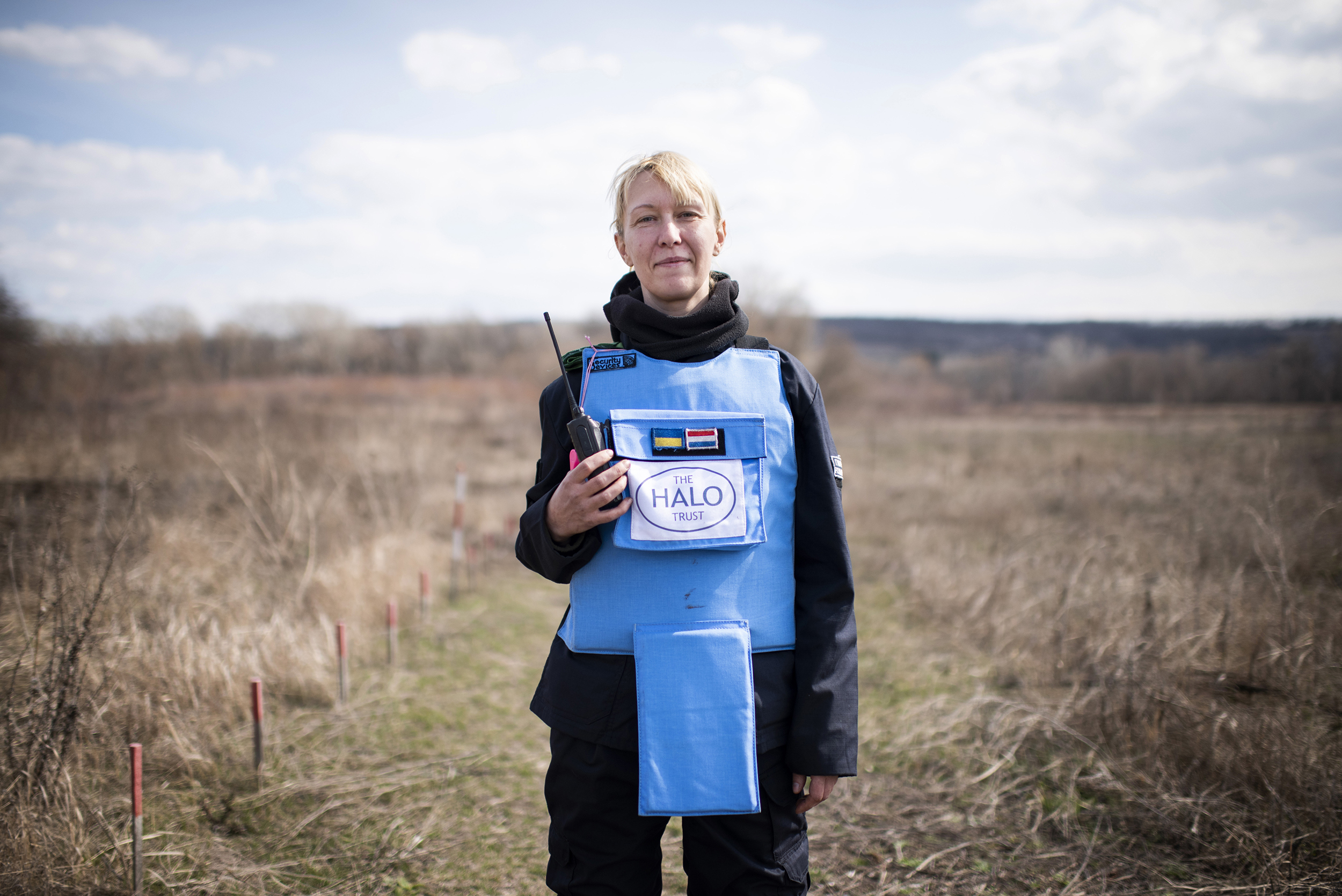UN agencies unite to clear unexploded ordnance endangering Lebanese returnees
UN agencies unite to clear unexploded ordnance endangering Lebanese returnees

TYRE, Lebanon, August 30 (UNHCR) - The UN refugee agency has signed a formal partnership with the United Nations Mine Action Service (UNMAS) for the rapid clearing of unexploded munitions scattered across southern Lebanon. The ordnance is proving a major obstacle to the restoration of normal life.
While most of the approximately one million Lebanese who fled the month-long war between Israel and the Hezbollah militant group have returned to their home areas, in many cases access to both their houses and the fields that provide their livelihoods has been blocked by unexploded ordnance (UXO), especially the bomblets scattered by cluster bombs.
"At the end of any conflict, the safe and dignified return of displaced people to their homes is always our priority," said Stephane Jaquemet, UNHCR representative in Lebanon.
"In the Lebanon context, it immediately became clear that safe return could only happen when the threat of UXO and other explosives has disappeared. For our work it is crucial that roads, civilian areas and homes are safe and UNMACC can help in this," he said, referring to the UN Mine Action Coordination Centre, the local office of the UNMAS.
Under the strategic partnership between UNHCR and UNMAS to ensure the rapid identification and clearance of UXO and the sensitisation of the local population, the two organisations on Wednesday began working with children from villages near Tyre threatened by UXO to warn them of the dangers.
"We were asked by the municipality leaders to provide mine awareness training for the children here, many of whom encounter cluster bombs and explosives on a daily basis," Dalia Farran, UNMACC's media and clearance officer, said at a playground just outside Tyre where children have been brought each day to forget briefly the destruction around them.
"This training is crucial, especially for children who are innocent, want to play and are totally unaware that small little items can be so harmful," said Farran.
After a few hours of sports, the children were gathered and given photos of the kinds of UXO now scattered around Lebanon. "I saw this thing," said little Mahmoud, looking at the mine awareness paper. "It was lying outside my house. But mum told me to stay away."
Since the August 14 ceasefire, 11 people have been killed and 50 injured by UXO, according to the Lebanese army, most from cluster bombs. Many Lebanese who returned after being displaced elsewhere in the country are now living in or close to their destroyed homes with UXO nearby.
"The conflict in Lebanon has resulted in an unprecedented unexploded ordnance contamination south of the Litani river and in areas in the north and east of the country," said Christopher Clark, programme manager of UNMACC in Tyre.
"Thousands of cluster bombs and other explosives litter the area and these must be cleared, in cooperation with the Lebanese army, before the displaced can return in safety and reconstruction can commence," he added.
Since the end of the conflict, UNHCR has supported UNMACC with warehouse facilities and five 4x4 trucks for rapid deployment of the mine action teams in southern Lebanon.
UNHCR has also worked closely with UNMACC's community liaison officers who have established a network in southern Lebanon over the past three years and helped in recent days to identify areas of greatest need and ensure the immediate distribution of UNHCR humanitarian assistance sooner than would have otherwise been possible.
UNHCR and UNMAS have cooperated on other projects in recent months, including in south Sudan. But this is the first time the two agencies have cooperated on a rapid response to major UXO contamination during a humanitarian emergency.
By Astrid van Genderen Stort in Tyre, Lebanon








